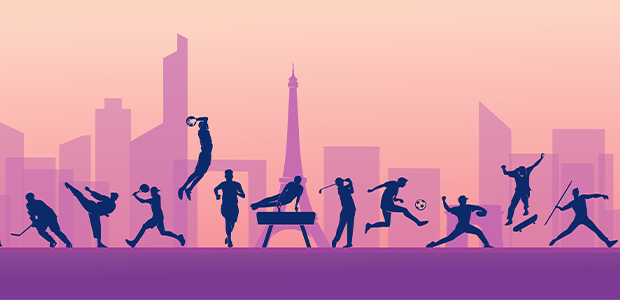
How small businesses can harness the summer of sport
Marketing to consumers during major sporting events can be challenging. Not only is the competition between official sponsors, but a sizable portion of large businesses are tapping into opportunities around them too.
Where this becomes especially difficult is for particularly small businesses like restaurants and local shops; only aimed towards a local group of consumers, they simply cannot compete on presence or marketing spend.
However, that local focus could open up opportunities to engage consumers in a new way – one not necessarily requiring specialist knowledge or big budgets. Instead, by only targeting customers in a specific area, these small businesses can make their budgets go much further, and capture sports fans who are ready to purchase the food and drink they want in the moment.
While many restaurants and shops now offer rapid delivery, not all are tapped into the right platforms needed to capture critical insights and ensure the best impact for their business. Here are three ways local businesses can seize the opportunities that these events create, and harness the summer of sport
Get the timing right
The pre-game hype is real, and it’s an opportunity that all businesses can tap into. Glovo Partner Ads data found that, during the 2022 World Cup and Euros 2024, it was the hours leading up to the games where food orders peaked, whereas food orders during games typically decreased. This was true across many of the countries Glovo operates in, demonstrating the power of the pre-game hype.
The same data also found that non-participation does not necessarily have an impact on sporting spirit, as Bulgaria saw a 27% increase in orders vs the daily average ahead of the final – despite not even qualifying for the competition. But as is the nature of sport, this year’s Euros competition affirmed that consumer ordering habits are anything but predictable: the delivery favourites were popular, pizza, was popular among fans in Spain as orders surged by a significant 48% during the semi-finals day, rising to 96% during the match.
Countries all over Europe welcomed the final as an opportunity to indulge, particularly Italy, which saw orders of burgers rise by 120%. Businesses should not assume that take-out favourites are all that fans are looking for, however. In Portugal, orders of local dishes climbed by 66%, demonstrating how small businesses offering local delicacies can benefit from the rush of regional events, too.
Location is everything
Cultural nuance can be crucial to understanding consumers’ habits. After the final of the Euros for example, Spanish fans were clearly in the mood to celebrate, with a 34% rise in orders. And, despite having been knocked out in the group stages, there was a 23% increase in orders in Croatia post-match too. Particularly for small businesses that are embedded within these local communities, it means they can harness the opportunity to connect with consumers when they are most active.
Having local knowledge enables businesses to be more specific in their marketing tactics as a result. While larger multinational organisations need to target consumers at scale across many cities to achieve the results they need, small businesses likely only need to reach a concentrated population for success.
They also don’t need to develop extensive marketing and advertising strategies with big budgets, they just have to look at where those consumers already are. In many cases, especially when the customer is already looking for food or groceries during major sporting events, that point of contact can be on a delivery app as they’re already in a buying mentality.
Keep promotions relevant
With such a diverse range of opportunities to become relevant to different consumers, it therefore pays to ensure timings for when promotions are active to align with their needs. Simply having an always on marketing plan may not necessarily be as effective as having the ability to turn spend on and off quickly.
Glovo data found that, during the final and semi-final matches of the Euros, Spanish fans responded to one in five featured promotions – witnessing 6% growth in such orders compared to the previous six months. A notable increase was also observed in order volumes in other European countries during these closely scheduled games. With sports often so international in their nature, businesses in other regions of the world should also consider promotions if the competition is culturally relevant. For example, businesses in Morocco and Nigeria saw an increase in promotional orders on the day of the final compared to the previous six months.
Promotions themselves need to be relevant to the audience. Consider offering 2-for-1 deals or discounts on larger portions and combos to match the likelihood that customers will be watching these matches in groups rather than individually, as well as the probability that countries competing in the finals may be even more willing to spend than usual.
Maximise the summer of sport
2024 is a unique opportunity for all small businesses, but restaurants and local stores in particular, to engage consumers and grow revenue. With consumers avidly focusing on what’s on their screens they are less likely to risk missing out on a big moment by going on a beer run or to the shop to stock up on food. Instead, consumers want easy access to their favourites quickly.
By making use of the marketing infrastructure that’s available to them, and without requiring expert knowledge or high budgets but leveraging the right insights, local businesses can move quickly and benefit from this heightened demand throughout the summer.

